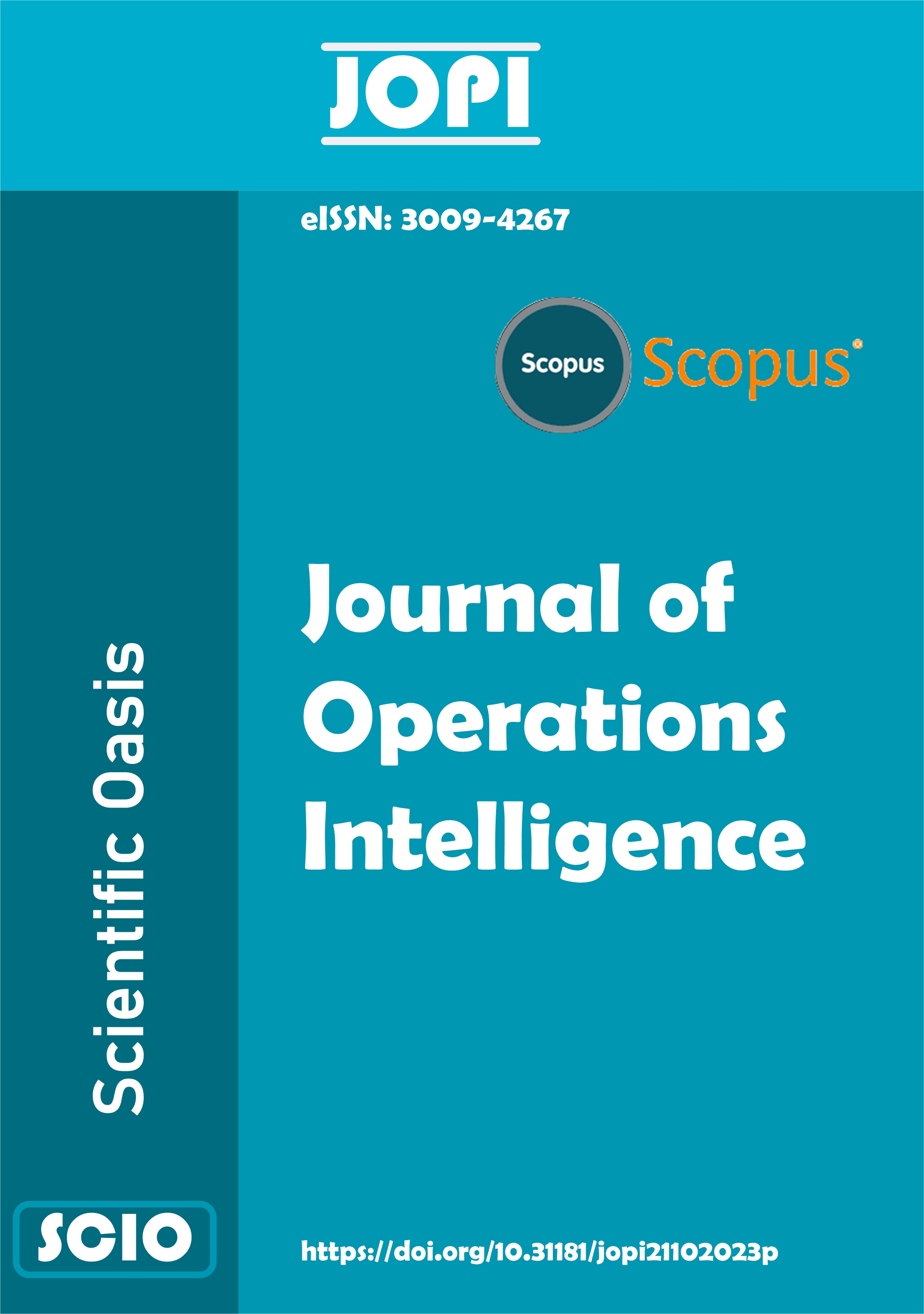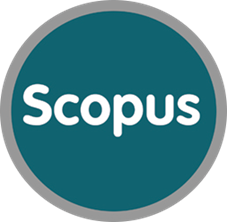Evaluation of Suitable Accounting and Auditing Firms for SMEs in the Textile Industry with Picture Fuzzy Set-based Entropy & MARCOS Approach
DOI:
https://doi.org/10.31181/jopi41202658Keywords:
Picture Fuzzy Sets, Entropy Method, MARCOS Method, SMEs, Accounting and Auditing FirmsAbstract
In today's highly competitive and dynamic business environment, selecting appropriate accounting and auditing service providers is critical for the sustainable growth and regulatory compliance of small and medium-sized enterprises (SMEs), particularly in the textile industry. This study proposes an integrated multi-criteria decision-making (MCDM) framework based on Picture Fuzzy Sets (PFS), Entropy, and the Measurement of Alternatives and Ranking according to the Compromise Solution (MARCOS) method to evaluate and rank suitable accounting and auditing firms for textile SMEs. Picture Fuzzy Sets are employed to model the inherent uncertainty and hesitancy in expert judgments more effectively, while the entropy method is utilized to determine objective weights for evaluation criteria. The MARCOS approach is then applied to assess and prioritize alternatives based on ideal and anti-ideal solutions. The proposed model is demonstrated through a case study involving expert evaluations from textile sector representatives and financial professionals. The results provide actionable insights for SMEs in selecting optimal accounting and auditing partners, and the robustness of the model is verified through sensitivity and comparative analyses. This study contributes to the literature by offering a novel and practical decision-support framework tailored to the specific needs of SMEs in a key industrial sector.
Downloads
References
Zadeh, L. A. (1965). Fuzzy sets. Information and Control, 8, 338–353.
Atanassov, K. T. (1986). Intuitionistic fuzzy sets. Fuzzy Sets and Systems, 20, 87–96. https://doi.org/https://doi.org/10.1016/S0165-0114(86)80034-3
Atanassov, K. T. (1999). Intuitionistic fuzzy sets. In Intuitionistic Fuzzy Sets (pp. 1–137). Studies in Fuzziness and Soft Computing.
Karaşan, A., & Kahraman, C. (2020). Selection of the most appropriate renewable energy alternatives by using a novel interval-valued neutrosophic ELECTRE I method. Informatica, 31. https://doi.org/10.15388/20-INFOR388
Görçün, Ö. F. (2022). A novel integrated MCDM framework based on Type-2 neutrosophic fuzzy sets (T2NN) for the selection of proper second-hand chemical tankers. Transportation Research Part E: Logistics and Transportation Review, 163, 102765. https://doi.org/10.1016/j.tre.2022.102765
Cuong, B. C. (2014). Picture fuzzy sets. Journal of Computer Science and Cybernetics, 30, 409–420.
Dutta, P., & Ganju, S. (2018). Some aspects of picture fuzzy set. Transactions of A. Razmadze Mathematical Institute, 172. https://doi.org/10.1016/j.trmi.2017.10.006
Cuong, B. C., & Kreinovich, V. (2014). Picture fuzzy sets - A new concept for computational intelligence problems. In 2013 3rd World Congress on Information and Communication Technologies (WICT 2013). https://doi.org/10.1109/WICT.2013.7113099
Seikh, M. R., & Dutta, S. (2024). A non-linear mathematical approach for solving matrix games with picture fuzzy payoffs with application to cyberterrorism attacks. Decision Analytics Journal, 10. https://doi.org/10.1016/j.dajour.2023.100394
Bani-Doumi, M., Serrano-Guerrero, J., Chiclana, F., Romero, F. P., & Olivas, J. A. (2024). A picture fuzzy set multi criteria decision-making approach to customize hospital recommendations based on patient feedback. Applied Soft Computing, 153, 111331. https://doi.org/10.1016/j.asoc.2024.111331
Kahraman, C. (2024). Proportional picture fuzzy sets and their AHP extension: Application to waste disposal site selection. Expert Systems with Applications, 238, 122354. https://doi.org/10.1016/j.eswa.2023.122354
Kutlu Gündoğdu, F., & Seyfi-Shishavan, S. A. (2022). Picture similarity measures and their application to medical diagnosis. In Lecture Notes in Networks and Systems. https://doi.org/10.1007/978-3-030-85626-7_101
Verma, R., & Rohtagi, B. (2022). Novel similarity measures between picture fuzzy sets and their applications to pattern recognition and medical diagnosis. Granular Computing. https://doi.org/10.1007/s41066-021-00294-y
Singh, S., & Ganie, A. H. (2022). On a new picture fuzzy correlation coefficient with its applications to pattern recognition and identification of an investment sector. Computational and Applied Mathematics, 41. https://doi.org/10.1007/s40314-021-01699-w
Kutlu Gündoğdu, F., & Ashraf, S. (2022). Some novel preference relations for picture fuzzy sets and selection of 3-D printers in Aviation 4.0. In Studies in Systems, Decision and Control. https://doi.org/10.1007/978-3-030-75067-1_12
Van Pham, H., Khoa, N. D., Bui, T. T. H., Giang, N. T. H., & Moore, P. (2022). Applied picture fuzzy sets for group decision-support in the evaluation of pedagogic systems. International Journal of Mathematical, Engineering and Management Sciences, 7. https://doi.org/10.33889/ijmems.2022.7.2.016
Anand, S., & Bibyan, R. (2022). Modelling of non-linear multi-objective programming and TOPSIS in software quality assessment under picture fuzzy framework. In Springer Series in Reliability Engineering. https://doi.org/10.1007/978-3-030-78919-0_14
Haktanır, E., & Kahraman, C. (2022). A novel picture fuzzy CRITIC & REGIME methodology: Wearable health technology application. Engineering Applications of Artificial Intelligence, 113, 104942. https://doi.org/10.1016/j.engappai.2022.104942
Jiang, Z., Wei, G., & Guo, Y. (2022). Picture fuzzy MABAC method based on prospect theory for multiple attribute group decision making and its application to suppliers selection. Journal of Intelligent & Fuzzy Systems, 42. https://doi.org/10.3233/jifs-211359
Tirmikcioglu Cinar, N. (2022). Picture fuzzy EDAS method for team leader selection in international audit firm. In Lecture Notes in Networks and Systems. https://doi.org/10.1007/978-3-030-85626-7_100
Yıldırım, B. F., & Yıldırım, S. K. (2022). Evaluating the satisfaction level of citizens in municipality services by using picture fuzzy VIKOR method: 2014-2019 period analysis. Decision Making: Applications in Management and Engineering, 5. https://doi.org/10.31181/dmame181221001y
Si, A., Das, S., & Kar, S. (2021). Picture fuzzy set-based decision-making approach using Dempster–Shafer theory of evidence and grey relation analysis and its application in COVID-19 medicine selection. Soft Computing. https://doi.org/10.1007/s00500-021-05909-9
Gocer, F. (2021). A novel interval value extension of picture fuzzy sets into group decision making: An approach to support supply chain sustainability in catastrophic disruptions. IEEE Access. https://doi.org/10.1109/ACCESS.2021.3105734
Stević, Ž., Pamučar, D., Puška, A., & Chatterjee, P. (2020). Sustainable supplier selection in healthcare industries using a new MCDM method: Measurement of alternatives and ranking according to COmpromise solution (MARCOS). Computers & Industrial Engineering, 140, 106231. https://doi.org/10.1016/j.cie.2019.106231
Shannon, C. E., & Weaver, W. (1947). The mathematical theory of communication. The University of Illinois.
Wei, G. (2016). Picture fuzzy cross-entropy for multiple attribute decision making problems. Journal of Business Economics and Management, 17, 491–502.
Simić, V., Lazarević, D., & Dobrodolac, M. (2021). Picture fuzzy WASPAS method for selecting last-mile delivery mode: A case study of Belgrade. European Transport Research Review, 13, 13–43.
Peng, X., & Luo, Z. (2021). Decision-making model for China's stock market bubble warning: The CoCoSo with picture fuzzy information. Artificial Intelligence Review, 54. https://doi.org/10.1007/s10462-021-09954-6
Görçün, Ö. F., Senthil, S., & Küçükönder, H. (2021). Evaluation of tanker vehicle selection using a novel hybrid fuzzy MCDM technique. Decision Making: Applications in Management and Engineering, 4, 140–162. https://doi.org/https://doi.org/10.31181/dmame210402140g
Görçün, Ö. F., Chatterjee, P., Stević, Ž., & Küçükönder, H. (2024). An integrated model for road freight transport firm selection in third-party logistics using T-spherical fuzzy sets. Transportation Research Part E: Logistics and Transportation Review, 186, 103542. https://doi.org/10.1016/j.tre.2024.103542
Görçün, Ö. F., Aytekin, A., & Korucuk, S. (2023). Fresh food supplier selection for global retail chains via bipolar neutrosophic methodology. Journal of Cleaner Production, 419, 138156. https://doi.org/10.1016/j.jclepro.2023.138156
Saaty, T. (1980). The analytic hierarchy process. McGraw Hill.
Belton, V., & Stewart, T. J. (2002). Multiple criteria decision analysis. Springer US. https://doi.org/10.1007/978-1-4615-1495-4
Downloads
Published
Issue
Section
License
Copyright (c) 2025 Cem Niyazi Durmus, Omer Faruk Gorcun (Author)

This work is licensed under a Creative Commons Attribution 4.0 International License.





















